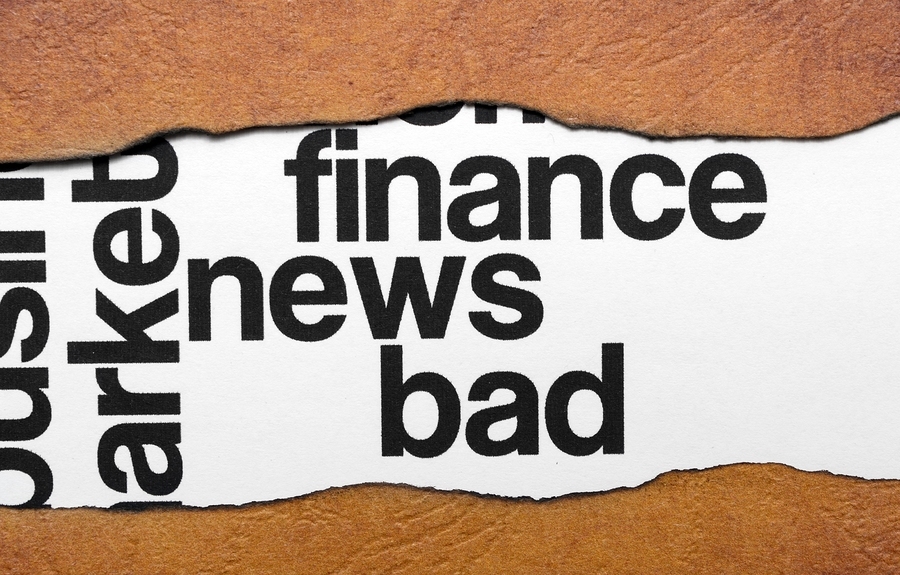The current economic issues that an executive might worry about mostly revolve around whether the pace of recovery from the Great Recession will pick up. After all, the stock market is up and unemployment has come down over time, according to official reports.

But you can never bet on smooth sailing. How many people in 2006 or 2007 were predicting the impending global economic calamity?
A future major downturn is a matter of when, not if. For sustaining your middle market business, it takes middle- to long-term planning to stay afloat. Being prudent doesn't mean digging a hole and hiding in it. Instead, you prepare.
Keep an Eye on Tomorrow
The first preemptive step to surviving a major slowdown is to monitor the current economic issues. In 2008, there were signs of the upcoming economic trouble.
Let's look at the housing-market climate in the years leading up to the Great Recession. At that time, housing prices continued to skyrocket. It was evident that the market would eventually hit a natural stopping point where people simply wouldn't be willing to spend as much as sellers wanted. Prices would go tumbling, and those who had just bought were likely to find themselves having lost a lot of value.
Reporting in publications such as the Financial Times indicated the growing structural problems in the housing market, securitization, and credit default swaps. It didn't take magic to know that a disaster was on the way; after all, the data that pointed to it was publicly available. The information behind the news stories of today can offer the potential for insight into tomorrow.
Don't Plan Available Money
It's not necessarily a given, but despite the assurance of some economists, it seems pretty clear that markets and investors make emotional decisions. If all decisions were rational, you wouldn't see bubbles and crashes.
Things are connected, and so when people get scared in one major area, they're likely to pull back in general. That's why it's important to develop a sizable war chest now, preferably cash because lines of credit can always be canceled by the lender. If you have extra now, then you have more room when you need it.
Far better to keep capital on hand than not be able to get it when you need it most. In 2009, access to lending for middle market companies was still tight. Underwriters were skittish because they had been so badly burned on overvalued assets as well as the financial instability of many borrowers.
Be Really Conservative
Forget politics for a moment and concentrate on a classic definition of conservative in the sense of looking for stability and employing prudence in making decisions. Peter Digby, managing director of U.K. motorsport transmission system vendor Xtrac, learned the hard way during the Great Recession how important conservative decisions could be. As he recently said during a roundtable:
I think 2008 made us all a little more cautious. We were involved in a management buyout in 1997 and then in 2000 we took on some private equity individuals and a lot of debt.
We're now debt-free, but the recession has made us a lot more conservative. We would not go out and borrow anywhere near the sums of money we did before, just in case another 9/11 or 2008 banking crisis comes along.
So, for example, the company will hire 20 people rather than 60 because Digby knows another downturn is just a matter of time and he'd rather not have to lay off people. "I'd much rather try and manage my business through product pricing to match our investment needs," he said.
Also, pay close attention to fundamental numbers.
Every Market Has Opportunities
Even if the economy in a major market heads south, you may have others. For example, in a global economy, there are other markets. If you can see a shift coming, start to move with it and work hard to develop the alternatives. Or it might be that you can match current or potential products and services with particularly customer segments that either can or must keep purchasing.
If you maintain enough economic strength, a slowdown can be a good time for acquiring competitors, and their customer bases, at a good price.
Remember, Worse Has Happened
Most importantly, don't panic. Not every problem is a catastrophic recession, let alone a depression. According to data from the National Center for the Middle Market, 82 percent of middle market firms survived the worse of 2007 to 2010. That's much better than the estimated 57 percent of small companies. Large firms had a 97 percent survival rate, but dropped 3.7 million jobs during that period. Middle market firms added 2.2 million jobs.
Other NCMM data showed that by the beginning of 2012, confidence and growth were returning. As a middle market company, yours is part of a powerhouse. Even when times are tough, it's important to remember that you have the experience, resources, and strength to endure and prosper.
Erik Sherman is an NCMM contributor and author whose work has appeared in such publications as The Wall Street Journal, The New York Times Magazine, Newsweek, the Financial Times, Chief Executive, Inc., and Fortune. He also blogs for CBS MoneyWatch. Sherman has extensive experience in corporate communications consulting and is the author or co-author of 10 books. Follow him on Twitter.